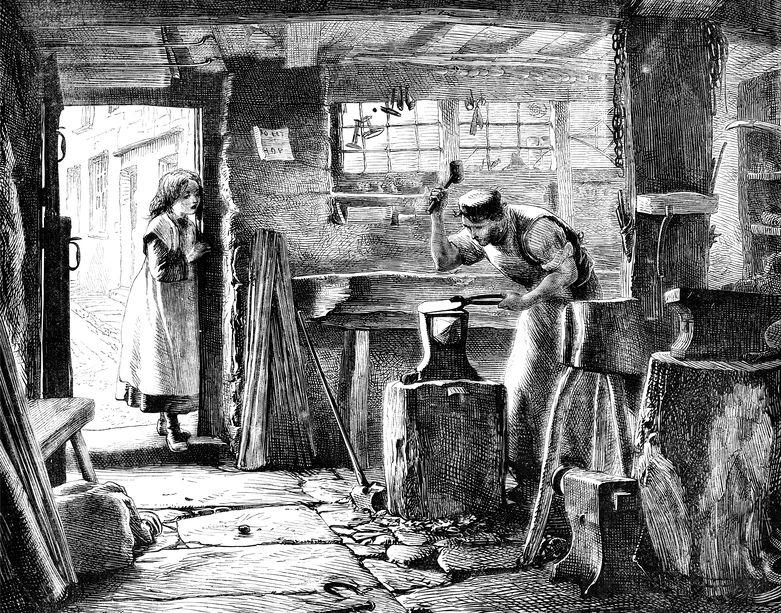Seems like an easy yes or no answer, but there are numerous financial costs and social change ramifications of going Green that make the answer weighty. If everyone can recall history, the worlds already experienced life without fossil fuels just a few short centuries ago.
We never had the oil industry before the 1900’s, so why do we believe society can adjust to living in those medieval times with just electricity? With no infrastructures to move things that are the basis of commerce, and no chemicals to make the products that are the basis of our lifestyles.
The Green New Deal (GND) may be in larval form right now, but the fact that it’s being seriously discussed in Congress (and around the world) is a quantum leap for politics. If nothing else, the advancing of Ocasio-Cortez and Markey’s bill signals that some of our elected officials are on board with inviting Americans to dream again — to imagine a better future for ourselves, even if the road between now and then hasn’t come entirely into focus yet.
What the GND affirms for Millennials, Gen Z and other young people is that we are not living in the best of times, and that recalibrating the world for sustainability and economic justice will not come from taking polite baby steps. We simply don’t have the time for that.
I know politicians both here and abroad are supportive of the GND to sunset the oil industry, BUT imagine how life was without that industry just a few hundred years ago before 1900 when we had NO militaries, NO communications systems, including cell phones, computers, and I Pads, NO vehicles, NO airlines that now move 4 billion people around the world, NO cruise ships that now move 25 million passengers around the world, NO merchant ships that are now moving billions of dollars of products monthly throughout the world, NO tires for vehicles, and NO asphalt for roads, NO water filtration systems, NO sanitation systems, NO space program, NO medications and medical equipment, NO vaccines, NO fertilizers to help feed billions.
Even more important than living without the above-mentioned infrastructures, before the 1900’s we had NONE of the 6,000 products that come from oil and petroleum products.
For now, forget about the questions of how to finance the GND’s guaranteed jobs for everyone with no infrastructures to work and high-quality healthcare for all with no medications or medical equipment. Just imagine living in those pioneer days with only electricity available and nothing to power since virtually everything we have today is made with the chemicals and by-products manufactured from crude oil.
Turning to the oil industry after 1900 we found that nothing powers economies the way refined oil does; oil can be turned into an array of products: cosmetics, athletic equipment, shoelaces, bowling balls, milk jugs, medications and the aviation, diesel and gasoline fuels. The two prime movers that have done more for the cause of globalization are the diesel engine and the jet turbine. Both get their fuels from oil and without this fuel transportation and commerce return to the pre-Industrial revolution age. In short, oil may be the single most flexible substance ever discovered, so why sunset that industry?
Renewables, such as solar, wind, and biofuels, require taxpayer financial subsidies that are derived from the infrastructures supported by fossil fuels. They require countryside-devouring land mass sprawl due to their low-power density to produce significant electricity, i.e., precious land that will be required to feed the billions on this earth.
How do we provide subsidies to the renewables industries when so many people living on earth survive on less than $10 a day? Today, across southern Asia, portions of Europe, parts of Africa and Australia, there are families attempting to live on virtually nothing. As hard as it is to believe, it is a truism.
How do we provide healthcare to those children in underdeveloped countries? Mostly from energy starved countries that are experiencing 11 million child deaths every year, and mainly from preventable causes when we have no transportation infrastructures to deliver the “medicine man”, since there will be no medications and medical equipment without the oil industry.
For those that support sun-setting the oil industry that is currently running this world’s economy and embark on those unknown GND roads, negotiate its many turns, obstacles and possibly suffer the consequences of removing an industry before we have an alternative industry to replace it, then keep supporting the GND proponents.
For those that believe we should have an alternative replacement for the oil industry before abandoning the industry responsible for international commerce, then it may be time to change our political leaders.
While developed countries with thriving economies continue to seek out an “alternative energy” that can maintain our economy, the billions of people in undeveloped countries may find difficulty adapting to a world without the oil industry as they are just starting to enhance their lifestyles and commerce.
